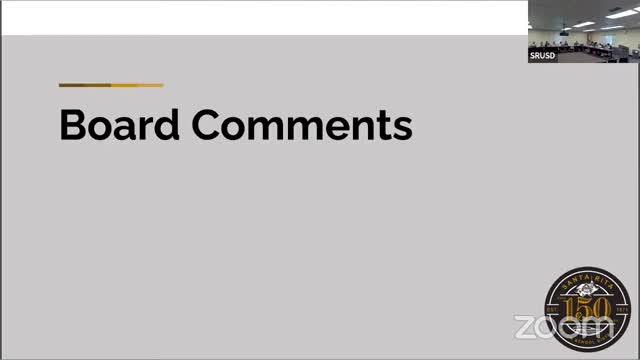Schools Debate Cell Phone Policies Amid Safety Concerns
August 29, 2024 | Santa Rita Union Elementary, School Districts, California
This article was created by AI summarizing key points discussed. AI makes mistakes, so for full details and context, please refer to the video of the full meeting. Please report any errors so we can fix them. Report an error »

During a recent government meeting, discussions centered around the implementation of a new policy regarding cell phone usage in schools, highlighting mixed feedback from parents and educators. The dialogue revealed a significant divide in opinions, with some parents expressing strong opposition to the proposed changes, while others reported a more favorable experience after initial hesitations.
The meeting underscored the importance of classroom management, with educators emphasizing that a blanket policy could disproportionately benefit those struggling with classroom control. The need for extended learning opportunities was also raised, suggesting that any new policy should consider the broader educational context.
Feedback from a recent survey indicated that only 20% of teachers participated, reflecting a limited but revealing snapshot of staff sentiment. Concerns were voiced about the potential distractions posed by cell phones, particularly during instructional time. One participant likened the situation to seatbelt usage, noting that while education on responsible phone use is crucial, it may not fully address compliance among all students.
Safety emerged as a key theme, particularly in the context of emergency situations. Several participants discussed the logistical challenges of managing cell phone access during crises, emphasizing the need for a clear safety plan. The conversation also touched on the necessity of educating parents about the policy changes and the rationale behind them, particularly regarding the potential risks associated with unrestricted phone access.
The meeting concluded with a consensus on the importance of balancing educational goals with safety concerns. Participants acknowledged that while cell phones are an integral part of modern life, their use in schools must be carefully managed to foster a productive learning environment. The board members expressed a commitment to further discussions and community engagement as they navigate the complexities of this policy decision.
The meeting underscored the importance of classroom management, with educators emphasizing that a blanket policy could disproportionately benefit those struggling with classroom control. The need for extended learning opportunities was also raised, suggesting that any new policy should consider the broader educational context.
Feedback from a recent survey indicated that only 20% of teachers participated, reflecting a limited but revealing snapshot of staff sentiment. Concerns were voiced about the potential distractions posed by cell phones, particularly during instructional time. One participant likened the situation to seatbelt usage, noting that while education on responsible phone use is crucial, it may not fully address compliance among all students.
Safety emerged as a key theme, particularly in the context of emergency situations. Several participants discussed the logistical challenges of managing cell phone access during crises, emphasizing the need for a clear safety plan. The conversation also touched on the necessity of educating parents about the policy changes and the rationale behind them, particularly regarding the potential risks associated with unrestricted phone access.
The meeting concluded with a consensus on the importance of balancing educational goals with safety concerns. Participants acknowledged that while cell phones are an integral part of modern life, their use in schools must be carefully managed to foster a productive learning environment. The board members expressed a commitment to further discussions and community engagement as they navigate the complexities of this policy decision.
View full meeting
This article is based on a recent meeting—watch the full video and explore the complete transcript for deeper insights into the discussion.
View full meeting
